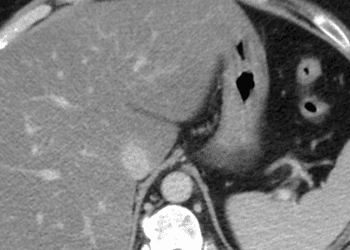Lifestyle intervention in obese diabetics does not affect cardiovascular events
Image: PD
1. Intensive lifestyle intervention in overweight and obese patients with type II diabetes reduced weight, hemoglobin A1c levels, and improved many risk factors for cardiovascular disease.
2. Intensive lifestyle intervention in overweight and obese patient did not significantly affect a cardiovascular events.
Evidence Rating Level: 1 (Excellent)
Study Rundown: This is the first study examining the long-term effects of diet and exercise in overweight or obese patients with type II diabetes (T2DM). Previous studies had suggested that such an intervention significantly reduced cardiac morbidity and mortality, however this study suggests it does not. While the primary outcome was a composite of multiple cardiovascular events, the results of each individual event (death, MI and stroke) showed no difference between the groups. The study was powered to detect a difference of 18% between the groups using an intervention that aimed at reducing bodyweight by 7%. It is possible that any cardioprotective effects of lifestyle intervention may be too subtle for a study of this power to detect, or that they require more intensive weight loss to become apparent. Additionally, the intervention focused on caloric reduction and not caloric composition – it is possible that a particular diet (such as the Mediterranean diet) would have showed a significant difference. Importantly, while the intervention had no significant affect on cardiovascular outcome, patients’ quality of life improved in the intervention group.
Click to read the study, published today in NEJM
Click to read an editorial in NEJM
Relevant Reading: The Look AHEAD study
In-Depth [randomized controlled trial]: A total of 5145 patients between 45-75 years of age with T2DM, a BMI > 25 were enrolled through 16 clinical sites across the United States. Subjects were randomly assigned to receive either intensive lifestyle intervention (consisting of increased physical activity and reduced caloric intake) or diabetes support and education. The study’s initial primary end point was a composite of cardiovascular outcome that included death from cardiovascular causes, nonfatal myocardial infarction, and nonfatal stroke. However, after 2 years the authors added hospitalization for angina to the primary outcome because not enough cardiovascular events had occurred in the control group. The trial was then stopped early after a median follow up of 9.6 years. While patients in the intervention group did in fact have improved cardiovascular risk factors, weight, and hemoglobin A1c, they displayed no significant reduction in cardiovascular events included within the primary outcome (hazard ratio 0.95; 95% confidence interval 0.83-1.09 p=0.51).
By Akira Shishido, M.D. and Mitalee Patil
More from this author: Peginesatide is noninferior to epoetin for anemia in hemodialysis patients [EMERALD Trials], Antibiotics improve outcomes in severe acute malnutrition, Carbapenem resistance in Enterobacteriaceae nearly quadrupled in the last decade, Eculizumab treats atypical hemolytic-uremic syndrome, Prone positioning decreases mortality in severe ARDS (PROSEVA Trial), On-demand inhalation treatment for bronchiolitis is superior to fixed schedule treatment, A survey of inflight medical emergencies
© 2013 2minutemedicine.com. All rights reserved. No works may be reproduced without written consent from 2minutemedicine.com. Disclaimer: We present factual information directly from peer reviewed medical journals. No post should be construed as medical advice and is not intended as such by the authors or by 2minutemedicine.com. PLEASE SEE A HEALTHCARE PROVIDER IN YOUR AREA IF YOU SEEK MEDICAL ADVICE OF ANY SORT. Content is produced in accordance with fair use copyrights solely and strictly for the purpose of teaching, news and criticism. No benefit, monetary or otherwise, is realized by any participants or the owner of this domain.









